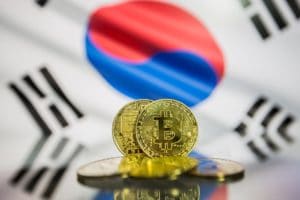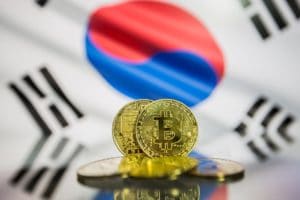
In a significant move towards regulating the crypto market, authorities in South Korea are about to introduce new guidelines that will impose stricter rules for listing tokens on centralized crypto exchanges.
It is expected that this development will have a significant impact on the operational dynamics of cryptocurrency exchanges within the country and potentially influence the global cryptocurrency landscape.
Guidelines in South Korea for crypto exchanges
The upcoming guidelines, reported by News1, aim to improve the security and reliability of digital asset transactions by establishing stricter criteria for tokens seeking to be listed on centralized exchanges.
This move is part of a broader effort by the South Korean government to protect investors and maintain the integrity of the financial system in the face of the growing digital asset market.
One of the key aspects of the new regulation is the strict control of tokens issued by projects that have experienced security breaches. According to the guidelines, any token issued by a project that has been breached and has not yet resolved its security issues may be excluded from listing on South Korean exchanges.
This measure aims to prevent the proliferation of vulnerable digital assets that could harm investors.
Furthermore, it is expected that the guidelines will introduce a requirement for foreign token projects intending to list their tokens on national exchanges. Such projects may need to develop specific whitepapers for the local market, in order to provide potential investors with complete and adequate information in the South Korean regulatory context.
However, tokens that have been listed on an authorized exchange for more than two years may be exempt from meeting these new requirements, providing a measure of continuity for consolidated digital assets.
The guidelines also address the issue of transparency and disclosure. Cryptocurrencies whose issuers fail to accurately disclose essential information, such as discrepancies between the actual number of copies in circulation and the declared amount, may be delisted. This measure highlights the authorities’ commitment to ensuring that investors have access to accurate and reliable information to make informed decisions.
Timelines for South Korean guidelines
The South Korean government plans to issue these guidelines by the end of the month, after consulting with local exchanges. This collaborative approach indicates the intention to balance regulatory objectives with the operational realities of the cryptocurrency market.
The move to make listing criteria stricter comes at a time when South Korea is recognized as one of the most vibrant cryptocurrency markets in the world. According to data from The Block, the largest cryptocurrency exchange in South Korea, Upbit, has processed over $221 billion in spot trading volume in the month of March alone, representing nearly 9% of the global spot volume.
This highlights the significant role of the South Korean market in the global cryptocurrency ecosystem and the potential impact of the new guidelines on token projects both locally and internationally.
Since the Financial Services Commission, the main regulatory body overseeing the local financial sector, has not yet responded to requests for comment, the cryptocurrency community is waiting for further details on the guidelines.
These rules could set a precedent for other nations grappling with the challenges of regulating the rapidly evolving cryptocurrency market, balancing the need for innovation with the imperative of protecting investors.
Conclusions
In conclusion, the decision of South Korea to introduce stricter guidelines for cryptocurrency listings reflects a growing trend among governments worldwide to regulate the cryptocurrency sector.
By setting higher standards in terms of security, transparency, and compatibility with the local market, South Korean authorities not only protect investors, but also promote a more stable and reliable ecosystem of digital assets.
As the global cryptocurrency market continues to evolve, the impact of these guidelines will be closely followed by regulatory authorities, investors, and industry operators worldwide, potentially influencing the development of similar regulatory frameworks in other jurisdictions.




















